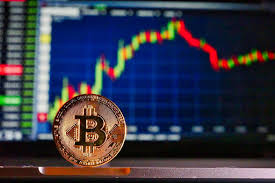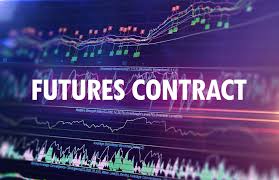Understanding What is Futures Trading in Financial Markets

What is Futures Trading in Financial Markets?
Futures trading is a crucial component of modern financial markets, offering traders a means to speculate on the future price of various assets. In essence, it involves buying or selling a standardized contract that obligates the buyer to purchase, and the seller to sell, an underlying asset at a predetermined future date and price. This instrument is commonly used for commodities like oil, gold, and agricultural products, as well as financial instruments such as currencies and stock indices. To better understand this complicated but rewarding field, what is futures trading in crypto click here to explore more resources on financial trading.
The Basics of Futures Trading
Futures contracts are standardized agreements traded on exchanges, which means they have predetermined terms related to quantity, quality, delivery, and pricing. One of the key advantages of futures trading is the ability to leverage capital. Traders can control a large contract value with a relatively small amount of capital, allowing for the potential of greater returns—or greater losses. This high-risk-high-reward nature makes it imperative for participants to have a solid understanding of the market.
How Futures Trading Works
When a trader enters a futures trade, they are either going long (buying) or short (selling). Going long means that a trader believes the price of the underlying asset will rise, while going short means that they anticipate a price decline. These positions can be closed before the contract’s expiration date; however, many traders prefer to hold until expiration, at which point the asset is delivered unless the contract is cash-settled.
Types of Futures Contracts
The two primary types of futures contracts are commodity futures and financial futures. Commodity futures pertain to goods like oil, metals, and agricultural products, while financial futures include stock index futures, currency futures, and interest rate futures. Each type serves specific purposes for hedging or speculation, catering to different market participants from producers to institutional investors.
The Role of Exchanges in Futures Trading

Futures contracts are traded on regulated exchanges which provide a platform for buyers and sellers to transact. Major exchanges include the Chicago Mercantile Exchange (CME), Intercontinental Exchange (ICE), and others. These exchanges help facilitate liquidity by ensuring that there is always a buyer for every seller. Additionally, they regulate the trading activities to protect the integrity of the market and its participants.
Advantages of Futures Trading
There are several advantages to engaging in futures trading:
- Leverage: One of the biggest draws of futures trading is the ability to control a larger position with a smaller amount of capital.
- Hedging: Futures are frequently used to hedge against price fluctuations in the underlying asset, allowing companies to stabilize costs or protect investments.
- Transparency: Trading on regulated exchanges provides a level of transparency that can be reassuring for traders.
- Diverse Investment Opportunities: Futures trading allows access to various asset classes, including commodities and currencies, providing more ways to diversify an investment portfolio.
Risks Involved in Futures Trading
While futures trading presents several benefits, it is not without risks. These include:
- Leverage Risk: While leverage can amplify profits, it can also significantly increase losses.
- Market Volatility: Futures markets can be highly volatile, with rapid price swings that generate substantial risks.
- Counterparty Risk: Although exchanges mitigate this risk, there is a possibility of default in off-exchange transactions.
- Complexity: Futures trading can be complicated, requiring a proper understanding of the markets, strategies, and risk management.
How to Get Started with Futures Trading
To begin trading futures, follow these steps:
- Educate Yourself: Understanding the fundamentals of futures contracts, market mechanisms, and trading strategies is critical.
- Choose a Broker: Research and select a brokerage that specializes in futures trading, ensuring they offer the necessary tools and support.
- Develop a Trading Plan: A solid plan should include risk management strategies, preferred assets, and your trading goals.
- Start Small: Initially trade small contracts to get a feel for the market without exposing too much capital.
- Monitor and Adjust: Continuously assess your trading strategies and market conditions to improve your performance over time.
Conclusion
Futures trading represents a fascinating and often lucrative aspect of the financial markets. By allowing investors and traders to speculate on price movements or hedge against risks, futures contracts serve a critical function in the overall economic landscape. While ensuring you understand the complexities and risks involved, futures trading can open up a world of possibilities for those ready to dive into the high-stakes environment of financial trading. Always prioritize education and develop a robust strategy to navigate the thrilling yet challenging world of futures trading.

Deixe uma resposta
Want to join the discussion?Feel free to contribute!